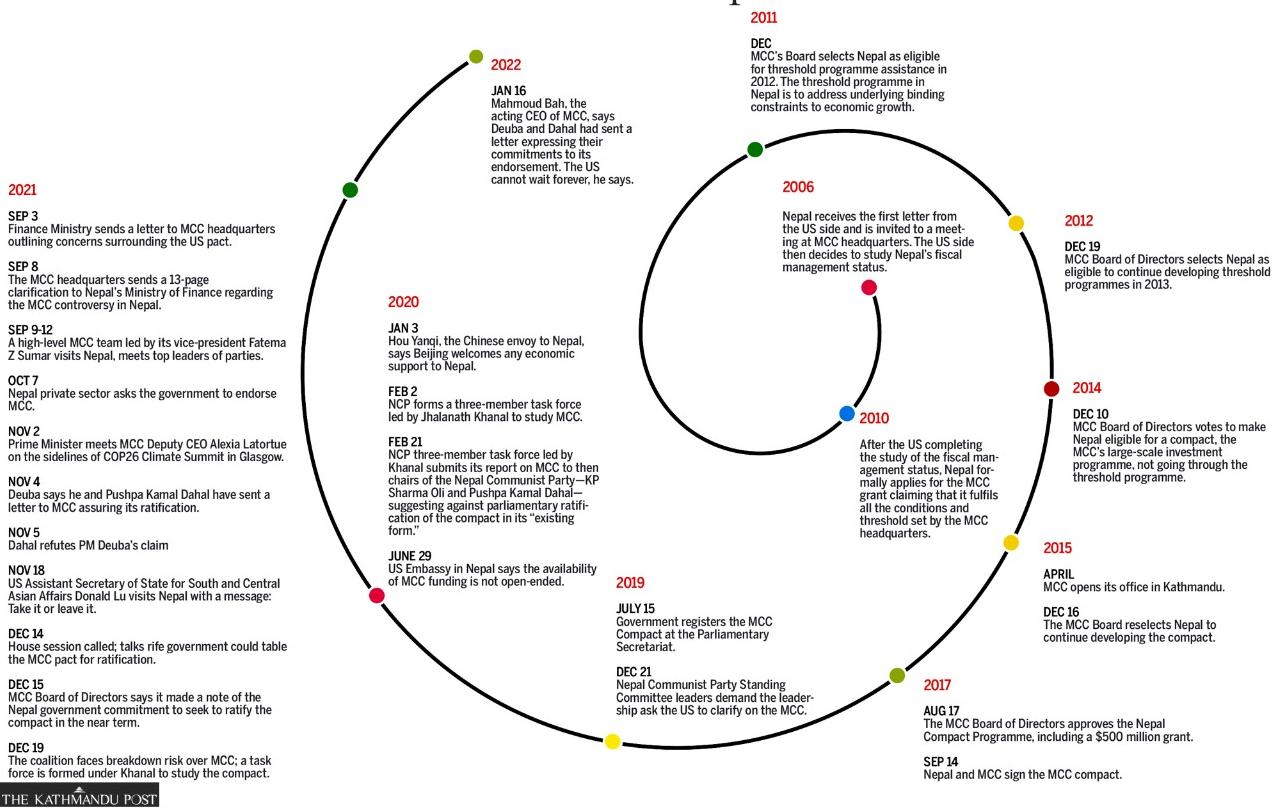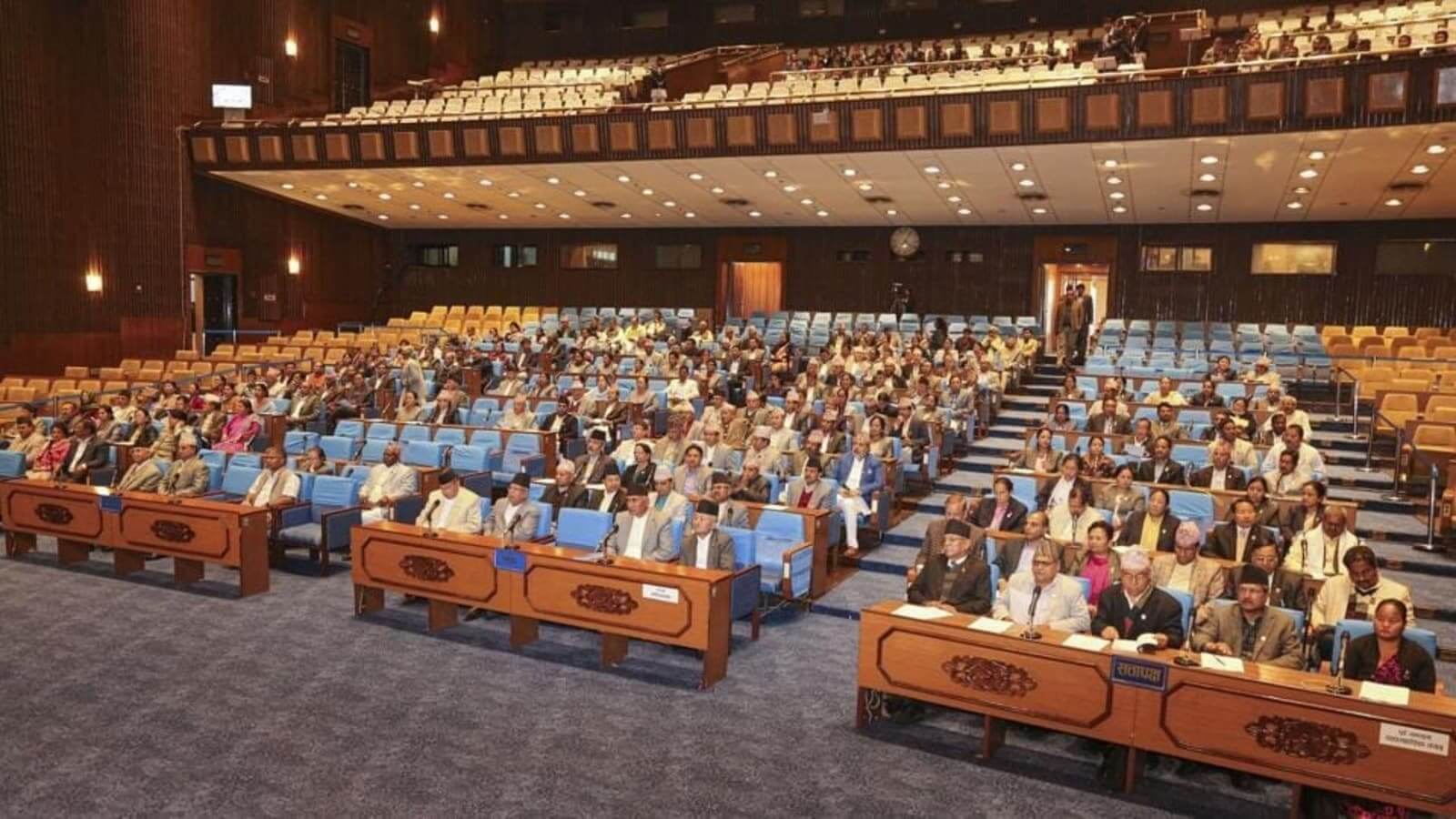On Sunday, despite enduring protests about its impact on the country’s sovereignty, Nepal’s Parliament approved the $500 million infrastructure grant funded by the American aid agency Millennium Challenge Corporation (MCC) to build power transmission lines and roads in the country.
The MCC was set up by the United States (US) in 2004 to provide assistance and support to low and middle-income countries. In 2017, the MCC approved a $500 million grant to fund infrastructure projects in Nepal. However, Nepal has continued to delay the ratification of the project; the most recent extension was approved in September 2021 and was slated to end on February 28.

The grant has generated widespread criticism from opposition parties and even members of the ruling coalition. Their misgivings have recently resulted in large-scale protests in the capital city of Kathmandu, with around 3,000 protestors taking to the streets and calling for a closure of schools and a suspension of public transport.
Political resistance to the MCC proposal was led by the communist parties, who believe that the grant’s terms are unfair to Kathmandu. They argued that it attempts to undermine Nepal’s sovereignty by superseding domestic laws, asserting that the infrastructure projects are a part of the US’ Indo-Pacific Strategy and could result in US military presence in the country.
However, the US insisted that the deal came with “no strings attached,” was solely for promoting Nepalese development, and did not have any military component.
This failed to quell opposition to the grant in the parliament and was only passed after weeks of discussions. Bhim Rawal, a leader of the opposition Nepal Communist Party (Unified Marxist-Leninist), said, “The agreement will bring Nepal under the security umbrella of the United States and should be rejected.” He further called it an “insult” to the country and a “betrayal of the country and the people.”
Meanwhile, Parliamentarians of the ruling party sought to secure the support of their coalition members, reassuring them that it does not contravene the constitution or domestic laws. To this end, Finance Minister Janardan Sharma insisted that the government has clarified that the MCC is “purely an economic project.”
Subsequently, ruling coalition members—the Communist Party of Nepal (Maoist Centre), the CPN (Unified Socialist), and the Janata Samajbadi Party—agreed to support the ratification of the proposal with an “interpretative declaration.” According to the ruling coalition leaders opposing the agreement, this addition to the terms of the grant accounts for their concerns. The 12-point declaration clarifies that Nepal will not be made a part of the US military alliances, including its Indo-Pacific Strategy, through the MCC. Furthermore, it states that the country’s domestic laws will always prevail and also has a clause that could push the government to nullify the agreement within 30 days if it reneges on any of these commitments.
Following the parliamentary discussion, which was conducted just a day before the extension was scheduled to expire, Speaker Agni Sapkota said that a majority of the legislators had supported the ratification during the vote on Sunday.
Meanwhile, China has vocally opposed the grant and its prospective impact on Nepal’s sovereignty. While addressing a media briefing earlier this month, Chinese foreign ministry spokesperson Wang Wenbin said, “We oppose coercive diplomacy and actions that pursue selfish agendas at the expense of Nepal’s sovereignty and interests.” He added that any such development and infrastructure assistance should “come with no strings attached.”
The US has previously alleged that China has been funding a disinformation campaign against the grant, resulting in the protests that had derailed the ratification of the MCC. In this respect, the US Embassy in Nepal welcomed the approval of the grant, saying, “Today’s decision by Parliament to follow through on its signed commitment and ratify the compact will mean more jobs for the Nepali people, a reliable supply of electricity, and lower transportation costs.”

